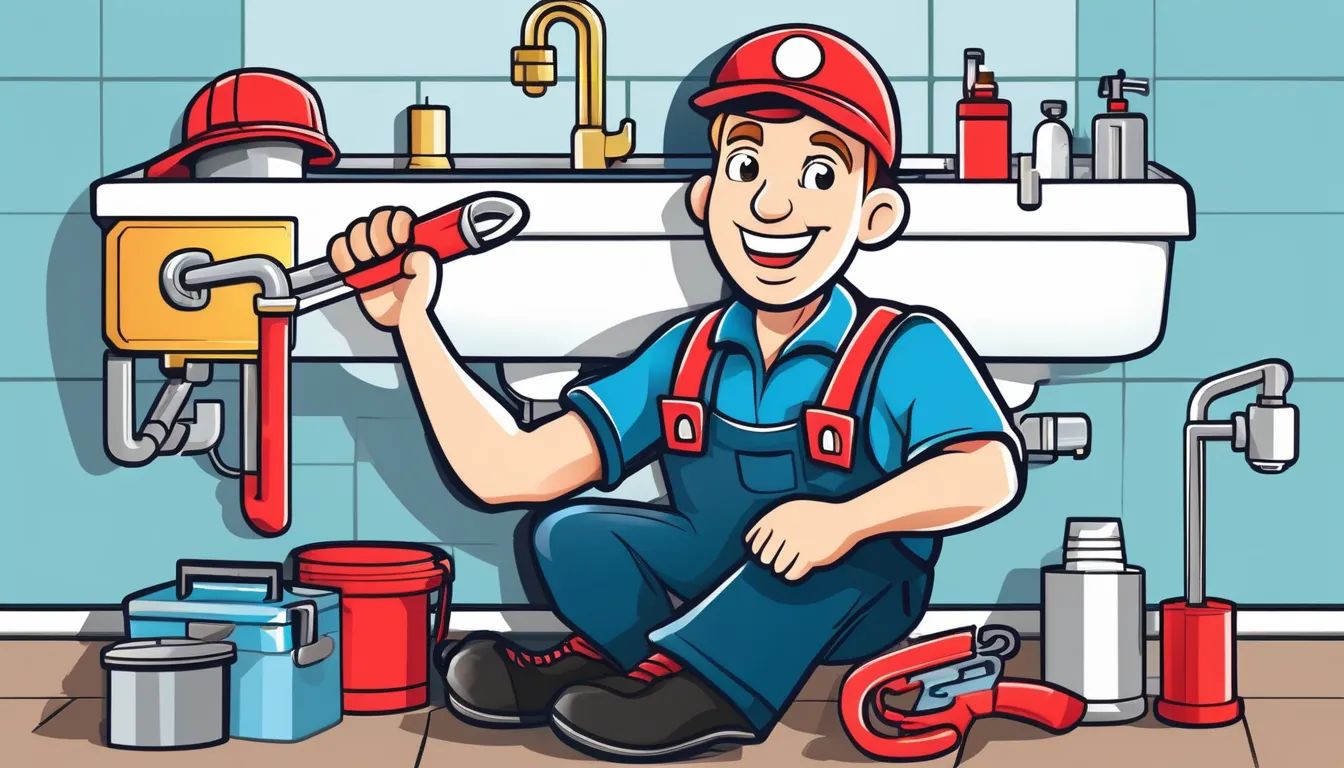When you’re dealing with a plumbing emergency, you might wonder how quickly help can actually arrive. Response times can vary widely based on your location, the time of day, and the urgency of your situation. In urban areas, you could see a plumber at your door within 30 minutes, while rural settings might take longer. Knowing how to effectively communicate your needs can make a difference, but what other factors should you consider to get that urgent assistance when you need it most? Let’s explore this further.
Understanding Plumbing Emergencies
When a plumbing emergency strikes, it’s crucial to act fast before the situation worsens. You need to recognize what qualifies as a plumbing emergency to respond effectively.
Common emergencies include burst pipes, severe leaks, overflowing toilets, and blocked drains that lead to water damage or unhygienic conditions.
If you notice water pooling around your home or hear strange noises from your plumbing, don’t ignore it. These signs often indicate serious problems that require immediate attention.
Getting ahead of the issue can save you time, money, and stress later on.
You should also know how to shut off the main water supply to your property. This simple action can prevent further damage while you wait for a plumber to arrive.
Booking in a plumbing repair is the first step to restoring peace in your home. Don’t wait until a minor issue becomes a major problem; schedule your service today! With the right plumber, you’ll have everything running smoothly in no time.
Factors Affecting Response Times
Understanding the factors affecting response times is essential for managing plumbing emergencies effectively. Several elements can influence how quickly a plumber arrives at your location.
First, your geographical location plays a significant role. If you live in a rural area, it may take longer for a plumber to reach you compared to someone in a densely populated urban center.
Next, the time of day matters. During peak hours or after regular business hours, plumbers may have multiple calls to attend to, which can delay their response.
Additionally, the urgency of your situation can affect how quickly help arrives. If you have a severe leak causing significant damage, that may take precedence over a less critical issue.
Another factor is the availability of plumbers in your area. If local plumbers are already busy with other jobs, it may take longer for someone to be available for your emergency.
Lastly, weather conditions can also impact travel times. Heavy rain or snow can slow down response efforts significantly.
Keeping these factors in mind can help you understand what to expect during a plumbing emergency.
Typical Response Timeframes
In most plumbing emergencies, you can expect a response time of anywhere from 30 minutes to a couple of hours. This timeframe largely depends on factors like your location, the time of day, and the plumber’s current workload.
If you live in a densely populated urban area, chances are that an urgent plumber can reach you faster than if you’re in a rural setting.
During peak hours, such as evenings or weekends, response times may be longer due to higher demand. However, many plumbing services prioritize urgent calls, aiming to dispatch a technician as quickly as possible.
It’s essential to communicate the urgency of your situation when you call for help. If you mention that your basement is flooding or that there’s a significant leak, the dispatcher will likely expedite your request.
Keep in mind that not all plumbing companies are created equal. Some might advertise rapid response times but can fall short in delivering.
Always choose a reputable service with a track record of meeting emergency needs promptly. By knowing what to expect, you can better manage your plumbing crisis when it strikes.
Preparing for the Plumber’s Arrival
Preparing for the plumber’s arrival can make the process smoother and less stressful. First, clear the area around the plumbing issue. Move any furniture, rugs, or personal items out of the way so the plumber can access the problem easily. This not only helps the plumber work efficiently but also protects your belongings.
Next, gather any necessary information about the issue. Take notes on what you’ve noticed, such as leaks, strange noises, or water pressure changes. This will help the plumber diagnose the problem quickly. If you have any plumbing-related documents, like warranties or previous service records, have those ready too.
It’s also smart to ensure that pets are secured in another room. This protects both your pets and the plumber, allowing for a focused work environment.
Lastly, be prepared to answer questions about your plumbing system and any maintenance you’ve done in the past. This information can significantly speed up the diagnosis and repair process.
Tips for Reducing Wait Times
How can you minimize wait times for a plumber? First, gather all relevant information about your plumbing issue before you call. Describe the problem clearly and provide details like the location and type of plumbing involved. This helps the plumber assess the urgency and prepare for the repair.
Next, have your contact in formation and address handy. Ensure your phone is charged and you’re available to answer any follow-up questions. If possible, confirm your availability for the plumber’s arrival to avoid scheduling conflicts.
You should also check if you have any preferred plumbing services in your area. Some companies might prioritize their regular customers, so establishing a relationship can lead to faster response times during emergencies.
Additionally, consider requesting an estimated arrival time when you call. Knowing when to expect the plumber can help you plan your day better.
Lastly, keep your property accessible. Clear any obstacles that might hinder the plumber’s access to the plumbing issue. The easier it’s for them to get to the problem, the quicker they can start working on it.
Conclusion
When you face a plumbing emergency, knowing what to expect can ease your stress. Response times can vary, but being clear about the urgency and having all relevant details ready can help speed things up. Remember, urban areas usually enjoy quicker service, so location plays a key role. By preparing for the plumber’s arrival and following the tips provided, you’ll be better equipped to handle the situation and minimize damage effectively.


